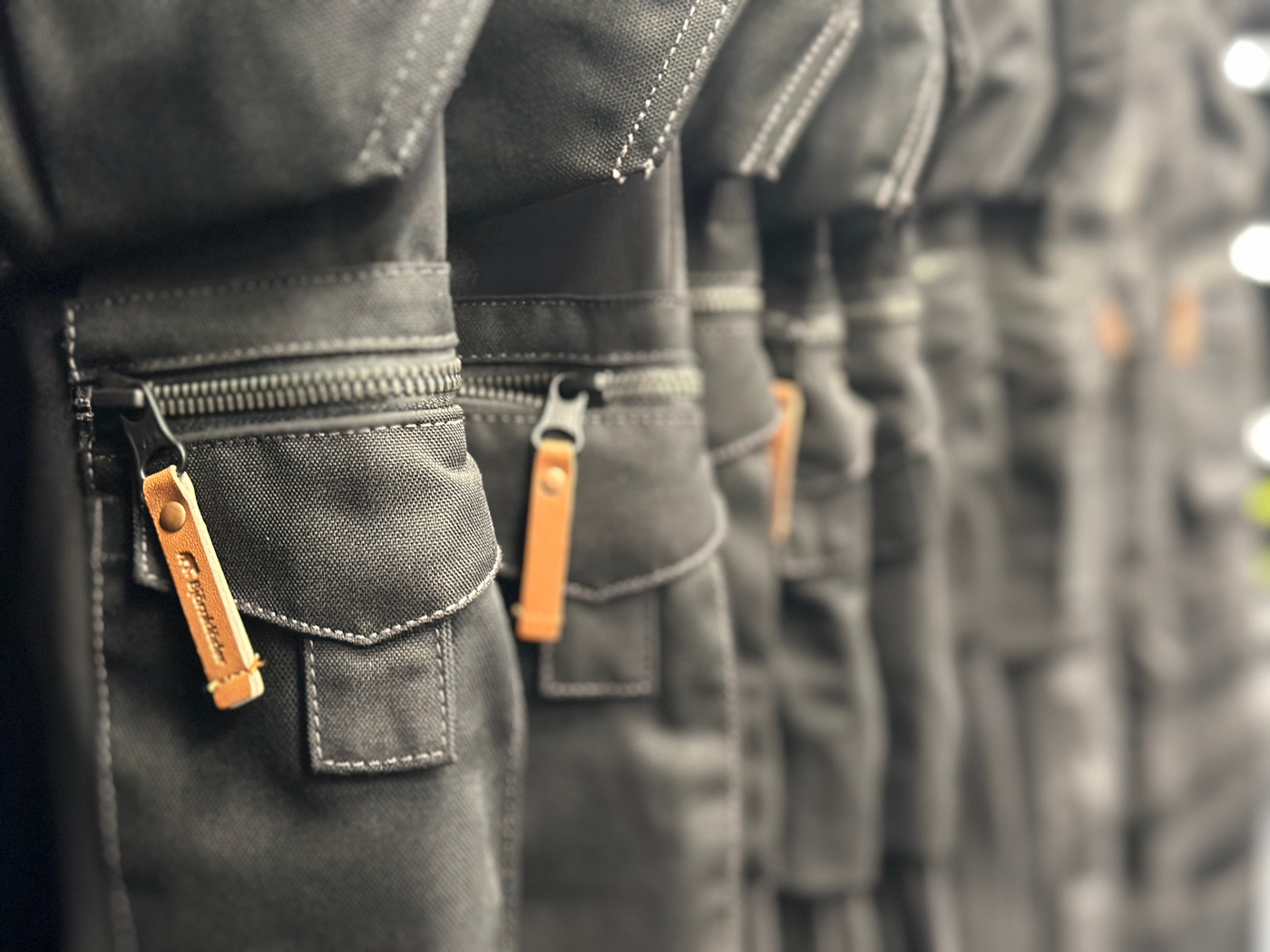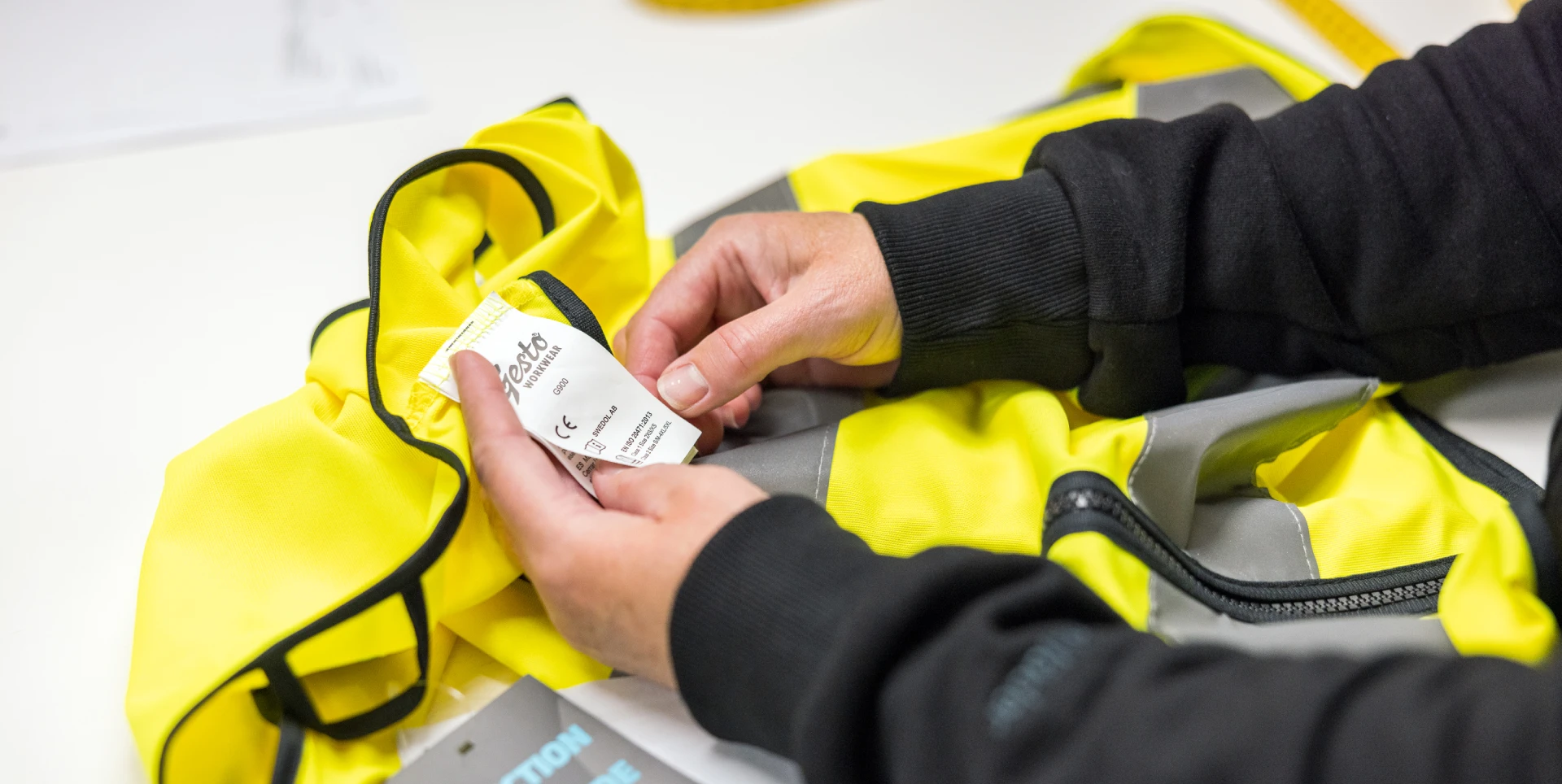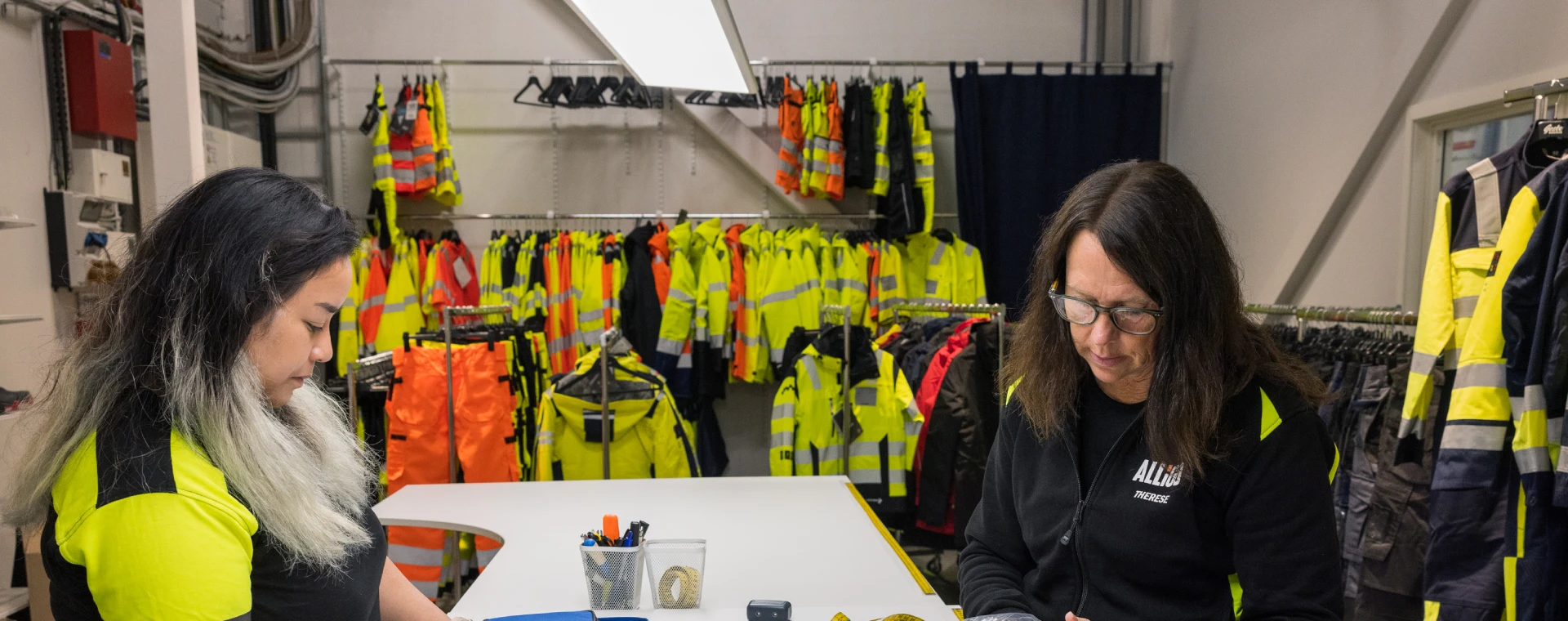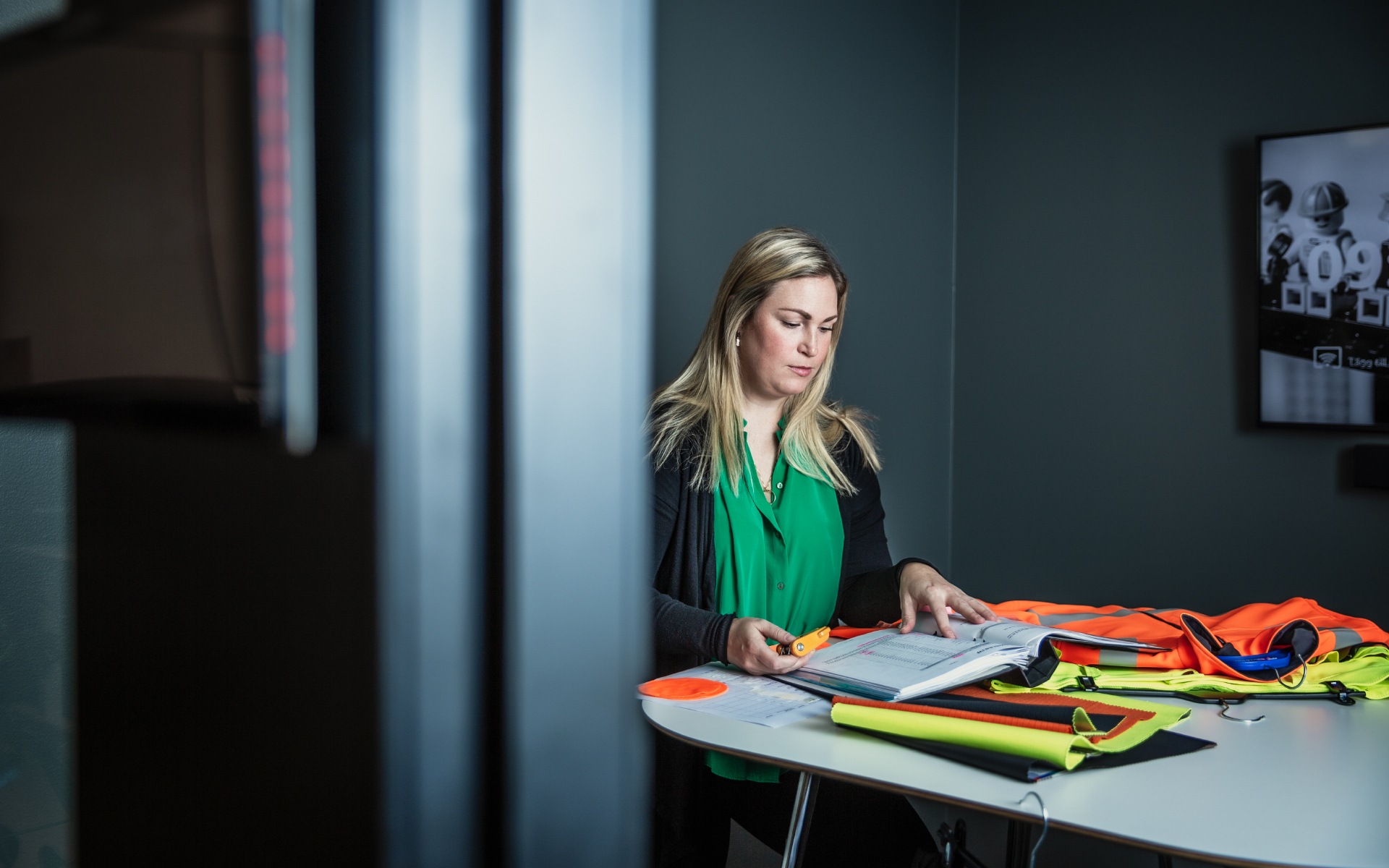
Responsible sourcing
Alligo establishes long-term partnerships with suppliers of both own brands and external brands. We expect our suppliers to comply with national laws and regulations, to respect international conventions and to comply with the requirements of our Supplier Code of Conduct.
Alligo’s responsibility for the impact on people, society and the environment extends beyond its own operations. Our suppliers are mainly located in the Nordic region, the rest of Europe and Asia.
Our own-brand products are manufactured primarily in China, Bangladesh, Laos, Vietnam and Pakistan.
As we buy from suppliers operating in markets where there is often a lack of respect for human rights, working conditions and anti-corruption, our supply chain responsibility is a priority area. We have the opportunity here to make a difference for many of the people who work in our supply chain.
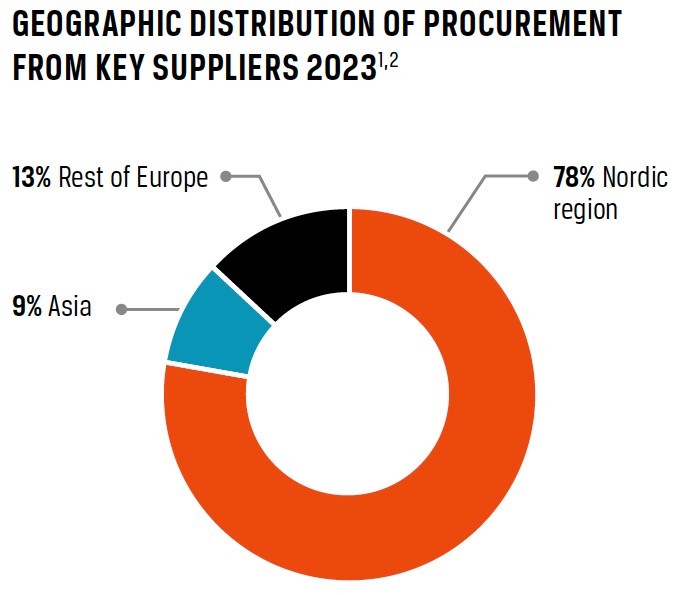
1) Suppliers with a purchasing value in excess of MSEK 1 in an individual country.
2) Share of procured value.
Setting high requirements
A centralised assortment and procurement organisation is responsible for Alligo having the right offering and the right products for customers. This responsibility includes ensuring that Alligo works with suppliers that satisfy the same high social, ethical and environmental requirements as Alligo’s own operations.
The Supplier Code of Conduct and the Chemical Restriction Lists are basic requirements that are included in all new agreements Alligo signs with suppliers.
67 per cent (65) of the purchase value is from suppliers to our standard range.
Systematic and risk-based working method
To work effectively with our many suppliers and to ensure responsible business practices, Alligo follows the OECD Guidelines for Multinational Enterprises. This means that we have adopted a risk-based working method to improve our conditions for responsible procurement.
Alligo has risk assessment procedures for the supply chain and carries out regular follow-ups that are reported to the Group management.
Amfori
Alligo is a member of Amfori, a European business initiative that works for social responsibility and sustainable working conditions in global supply chains. Its members work together to drive improvements through consistent requirements and initiatives. Suppliers undertake to comply with the common code of conduct and follow-up is performed by independent third-party auditors.
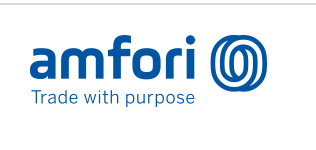
Risks in the supply chain
Alligo works continuously to identify, analyse and follow-up sustainability risks in the supply chain.
The Group has the greatest opportunity to stipulate requirements and influence suppliers of our own brands.
The geographic risks and risks related to industry are based on a well-established index that is linked to working conditions, human rights, environment and corruption.
Complex supply chains, where a large proportion of manufacturing takes place in Asian countries with a widespread risk of political instability, corruption and weak labour law protection, represent a particularly high risk within the Personal protective equipment and workwear product area.
Migrant workers, which are prevalent in China for example, are a group that is particularly vulnerable to unreasonable working conditions.
Follow-up and review
Based on mapping and risk assessment of Alligo’s suppliers, we follow up and evaluate their performance against our requirements.
Suppliers to Alligo’s standard range must perform digital a self-assessment, based on the requirements of the Group’s Supplier Code and Chemical Restriction Lists.
The work began in 2021 and by 2023 a total of 246 suppliers (212) had completed Alligo’s self-assessment, which corresponds to 67 % (65) of the total purchase value from suppliers to our standard range. The aim is for all suppliers to our standard range to perform the self-assessment.
Third-party audits are carried out at factories where Alligo’s own products are manufactured, in accordance with amfori BSCI’s audit programme, to monitor compliance with the requirements of the Code of Conduct. Which suppliers are audited, and how often, is adapted on the basis of the risk analysis performed.
Employees from Alligo’s product department regularly visit suppliers and manufacturers in order to follow up on contract terms, among other things. During these visits, issues relating to human rights, working conditions, environment and corruption are also discussed.
If non-compliance is identified, a joint action plan is drawn up in the first instance in order to ensure compliance with the Code of Conduct through support and training.
In the event of any major breach of or repeated deviations from the Code of Conduct, the business relationship with the supplier may be terminated.
